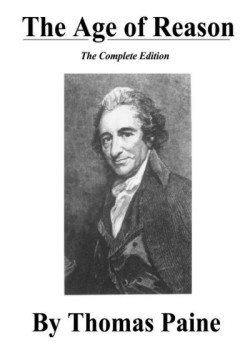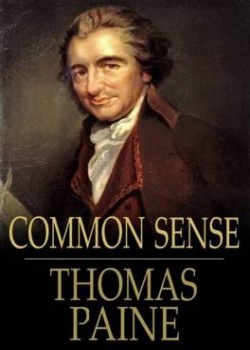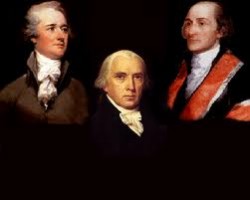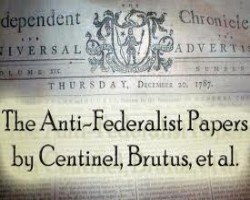HISTORY OF THE COLONIES
CHAPTER XVI
GENERAL REVIEW OF THE COLONIES
§ 146. We have now finished our survey of the origin and political history of the colonies; and here we may pause for a short time for the purpose of some general reflections upon the subject.
§ 147. Plantations or colonies in distant countries are either, such as are acquired by occupying and peopling desert and uncultivated regions by emigrations from the mother country; or such as, being already cultivated and organized, are acquired by conquest or cession under treaties. There is, however, a difference between these two species of colonies in respect to the laws, by which they are governed, at least according to the jurisprudence of the common law. If an uninhabited country is discovered and planted by British subjects, the English laws are said to be immediately in force there; for the law is the birthright of every subject. So that wherever they go, they carry their laws with them; and the new found country is governed by them.
§ 148. This proposition, however, though laid down in such general terms by very high authority, requires many limitations, and is to be understood with many restrictions. Such colonists do not carry with them the whole body of the English laws, as they then exist; for many of them must, from the nature of the case, be wholly inapplicable to their situation, and inconsistent with their comfort and prosperity. There is therefore, this necessary limitation implied, that they carry with them all the laws applicable to their situation, and no repugnant to the local and political circumstances, in which they are placed.
§ 149. Even as thus stated, the proposition is full of vagueness and perplexity; for it must still remain a question of intrinsic difficulty to say, what laws are, or are not applicable to their situation; and whether they are bound by the present state of things, or are at liberty to apply them in future by adoption, as the growth or interests of the colony may dictate. The English rules of inheritance, and of protection from personal injuries, the rights secured by Magna Charta, and the remedial course in the administration of justice, are examples as clear perhaps as any, which can be stated, as presumptively adopted, or applicable. And yet in the infancy of a colony some of these very rights, and privileges, and remedies, and rules, may be in fact inapplicable, or inconvenient, and impositic. It is not perhaps easy to settle, what parts of the English laws are or are not in force in any such colony, until either by usuage, or judicial determination, they have been recognized as of absolute force.
§ 150. In respect to conquered and ceded countries, which have already laws of their own, a different rule prevails. In such cases the crown has a right to abrogate the former laws, and institute new ones. But until such new laws are promulgated, the old laws and customs of the country remain in full force, unless so as far as they are contrary to our religion or enact any thing, that is malum in se; for in all such cases the laws of the conquering or acquiring country shall prevail. This qualification of the rule arises from the presumption, that the crown could never intend to sanction laws contrary to religion or sound morals. But although the king has thus the power to change the laws of ceded and conquered countries, the power is not unlimited. His legislation is subordinate to the authority of parliament. He cannot make nay new change contrary to fundamental principles; he cannot exempt an inhabitant from that particular dominion, as for instance from the laws of trade, or from the power of parliament; and he cannot give him privileges exclusive of other subjects.
§ 151. M. Justice Blackstone, in his Commentaries, insists, that the American colonies are principally to be deemed conquered, or ceded countries. His language is, " Our American Plantations are principally of this later sort, [i.e. ceded or conquered countries,] being obtained in the last century either by right of conquest and driving out the natives, (with what natural justice I shall not at present inquire,) or by treaties. And, therefore, the common law of England, as such, has no allowance or authority there; they being no part of the mother country, but distinct, though dependent dominions,"
§ 152. There is great reason to doubt the accuracy of this statement in a legal view. We have already seen, that the European nations, by whom America was colonized, treated the subject in a very different manner. They claimed an absolute dominion over the whole territories afterwards occupied by them, not in virtue of any conquest of, or cession by the Indian natives; but as a right acquired by discovery. Some of them, indeed, obtained a sort of confirmatory grant from the papal authority. -- But as between themselves they treated the dominion and title of territory as resulting from priority of discovery; and the European power, which had first discovered the country, and set up mark of possession, was deemed to have gained the right, though it had not yet formed a regular colony there. We have also seen, that the title of the Indians was not treated as a right of propriety and dominion; but as a mere of right of occupancy. As infidels, heathen, and savages, they were not allowed to possess the prerogatives belonging to absolute, sovereign and independent nations. The territory, over which they wandered, and which they used for their temporary and fugitive purposes, was, in respect to Christians, deemed, as if it were inhabited only by brute animals. There is not a single grant from the British crown from the earliest grant of Elizabith down to the latest of George the Second, that affects to look to any title, except that founded on discovery. Conquest or cession is not once alluded to. And it is impossible, that it should have been any conquest or cession from the natives of the territory comprehended in those grants. Even in respect to the territory of New-York and New-Jersey, which alone afford any pretence for a claim by conquest, they were conquered from the Dutch, and not from the natives; and were ceded to England by the treaty of Breda in 1667. But England claimed this very territory, not by right of this conquest, but by the prior right of discovery. The original grant was made to the Duke of York in 1664, founded upon this right, and the subsequent confirmation of his title did not depart from the original foundation.
§ 153. The Indians could in no just sense be deemed a conquered people, who had been stripped of their territorial possessions by superior force. They were considered as a people, not having any regular laws, or any organized government; but as mere wandering tribes. They were never reduced into actual obedience, as dependent communities; and no scheme of general legislation over them was ever attempted. For many purposes they were treated as independent communities, at liberty to govern themselves; so always that they did not interfere with the paramount rights of the European discoverers.
§ 154. For the most part at the time of the first grants of the colonial charters, there was not any possession or occupation of the territory by any British emigrants. The main objects of these charters, as stated in the preliminary recitals, was to invite emigrations, to people the country, to found colonies, and to Christianize the natives. Even in case of a conquered country, where there are no laws at all existing; or none, which are adapted to a civilized community; or where the laws are silent, or are rejected and none substituted; the territory must be governed according to the rules of natural equity and right. And Englishmen removing thither must be deemed to carry with them those rights and privileges, which belong to them in their native country.
§ 155. The very ground, therefore, assumed by England, as the foundation of its title to America, and the invitations to its own subjects to people it, carry along with them a necessary implication, that the plantations, subsequently formed, were to be deemed a part of the ancient dominions; and the subjects inhabiting them to belong to a common country, and to retain their former rights and privileges. The government in its public policy and arrangements, as well as in its charters, proclaimed, that the colonies were established with a view to extend and enlarge the boundaries of the empire. The colonies, when so formed, became a part of the state equally with its ancient possessions. It is not, therefore, without strong reason, that it has been said, that " the colonists, continuing as much subjects in the new establishment, where they had freely placed themselves, [with the consent of the crown,] as they had been in the old, carried with them their birthright, the laws of their country; because the customs of a free people are a part of their liberty; " and that " the jurisprudence of England became that of the colonies, so far as it was applicable to the situation, at which they had newly arrived, because they were Englishmen residing within a distant territory of the empire." And it may be added, that as there were no other laws there to govern them, the territory was necessarily treated, as a deserted and unoccupied country, annexed by discovery to the old empire, and composing a part of it. Moreover, even if it were possible to consider the case, as a case of conquest from the Indians, it would not follow, if the natives did not remain there, but deserted it, and left it a vacant territory, that the rule as to conquests would continue to apply to it. On the contrary, as soon as the crown should choose to found an English colony in such vacant territory, the general principle of settlements in desert countries would govern it. It would cease to be a conquest, and become a colony; and as such be affected by the British laws. This doctrine is laid down with great clearness and force by, Lord Mansfield, in his celebrated judgment in Hall v. Campbell, (Cowp. R. 204, 211, 212.) In a still more recent case it was laid down by Lord Ellenborough, that the law of England might properly be recognized by subjects of England in a place occupied temporarily by British troops, who would impliedly carry that law with them.
§ 156. The doctrine of Mr. Justice Blackstone, therefore, may well admit of serious doubt upon general principles. But it is manifestly erroneous, so far as it is applied to the colonies and plantations composing our Union. In the charters, under which all these colonies were settled, with a single exception, there is, as has been already seen, an express declaration, that all subjects and their children inhabiting therein shall be deemed natural-born subjects, and shall enjoy all the privileges and immunities thereof; and that the laws of England, so far as they are applicable, shall be in force there; and no laws shall be made, which are repugnant to, but as near as may be conveniently, shall conform to the laws of England. Now this declaration, even if the crown previously possessed a right to establish what laws it pleased over the territory, as a conquest from the natives, being a fundamental rule of the original settlement of the colonies, and before the emigrations thither, was conclusive, and could not afterwards be abrogated by the crown. It was an irrevocable annexation of the colonies to the mother country, as dependencies governed by the same laws, and entitled to the same rights.
§ 157. And so has been the uniform doctrine in America ever since the settlement of the colonies. The universal principle (and the practice has conformed to it) has been that the common law is our birthright and inheritance and that our ancestors brought hither with them upon their emigration all of it, which was applicable to their situation. The whole Structure of our present jurisprudence stands upon the original foundations of the common law.
§158. We thus see in a very clear light the mode, in which the common law was first introduced into the colonies; as well as the true reason of the exceptions to it to be found in our colonial usages and laws. It was not introduced, as of original and universal obligation in its utmost latitude; but the limitations contained in the bosom of the common law itself, and indeed constituting a part of the law of nations, were affirmatively settled and recognised in the respective charters of settlement. Thus limited and defined, it has become the guardian of our political and civil rights; it has protected our infant liberties; it has watched over our maturer growth; it has expanded with our wants; it has nurtured that spirit of independence, which checked the first approaches of arbitrary power; it has enabled us to triumph in the midst of difficulties and dangers threatening our political existence and by the goodness of God, we are now enjoying, under its bold and manly principles, the blessings of a free, independent, and united government.







The most important project on this website is "THE WORKS."
This is the place where you can read the words of the founding fathers and those who had a VERY BIG part in the founding of this country.
Not only do we have the Federalist and the Anti-Federalist Papers, but we also have other Constitutional Commentaries that were written shortly after the Constitution was ratified.